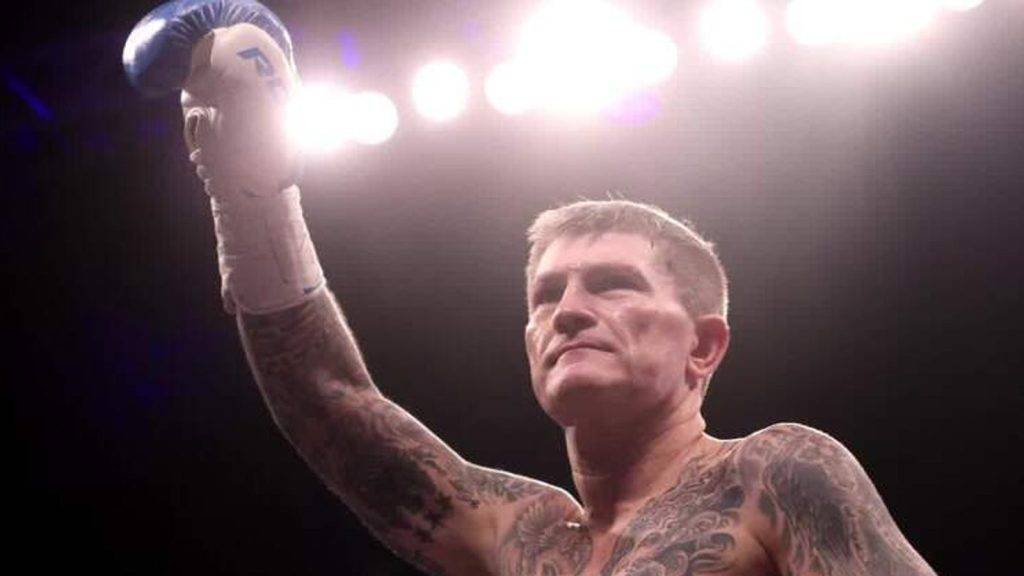Cliff Notes
- Former world champion boxer Ricky Hatton died at age 46; he was known for his dynamic career and multiple titles in light welterweight and welterweight divisions.
- Hatton had announced a return from retirement for a scheduled fight in December, following a 13-year hiatus since his last professional match in 2012.
- Tributes have poured in from notable figures in sport, highlighting Hatton’s impact on boxing and acknowledging his battles with personal hardships, including mental health issues.
Former world champion boxer Ricky Hatton has died aged 46 | UK News
Former world champion boxer Ricky Hatton has died aged 46.
During his career between 1997 and 2012, the British fighter – nicknamed “The Hitman” – won titles in the light welterweight and welterweight divisions.
Follow the latest: Tributes being paid to former boxing world champion
In July this year, he announced he was coming out of retirement for a December bout in Dubai, 13 years on from his last professional match.
The Manchester boxer had been set to fight Eisa Al Dah on 2 December.
In 2023, Sky broadcast a documentary exploring the boxer’s life in the ring, his fractured personal life and his continuing mental health battles.
Greater Manchester Police said on Sunday: “Officers were called by a member of the public to attend Bowlacre Road, Hyde, Tameside, at 6.45am today where they found the body of a 46-year-old man.
“There are not currently believed to be any suspicious circumstances.”
He said: “As he would travel around the world, winning fights, he would bring that huge fan base with him… To have the career he had, with 45 victories and three defeats, was impressive.”
During his 15-year professional career, Hatton held multiple world championships at light-welterweight and one at welterweight class.
In his prime, Hatton secured victories over the likes of Kostya Tszyu and Jose Luis Castillo, before going on to suffer brutal knockout losses to Floyd Mayweather Jr in 2007 and Manny Pacquiao in 2009.
Hatton last fought professionally in November 2012, suffering a knockout loss to Ukraine’s Vyacheslav Senchenko.
He once more returned to the ring for a non-scoring exhibition bout with Marco Antonio Barrera in 2022.
Messages from those in the sports world poured in following news of his death, with boxers including Amir Khan, Tyson Fury, and Chris Eubank Jr, and footballer Michael Owen all paying tribute.
Born Richard John Hatton in Stockport, Cheshire, in October 1978, he rose through amateur and domestic levels to become one of the most popular fighters in the first decade of the new century.
But he had suffered a series of well-publicised issues in his private life since his 2009 defeat against Pacquiao in their IBO light-welterweight title fight in Las Vegas.
Hatton said at the time, he did not want to see those demons tarnish his legacy in the sport, and had another world title belt in his sights.
In 2010, he was admitted to rehab, struggling with drink and depression.
Hatton would overcame a fallout with his family and a court case with his former trainer Billy Graham to become a successful trainer, coaching Zhanat Zhakiyanov to a world bantamweight title win in 2017.
His down-to-earth attitude endeared him to fans around the world, and in 2024, he joined ITV reality show, Dancing On Ice, but was the first celebrity to leave the competition.
Speaking ahead of his final professional fight in 2012, Hatton, who was a father of three, told reporters: “I don’t want people telling my kids that I blew it. I want my kids to be able to say, ‘He was a world champion, he had his problems, but my did he bounce back’.
“I want people to be proud of me again. I want British sport, my kids and my fans and my friends to be proud of me.”


